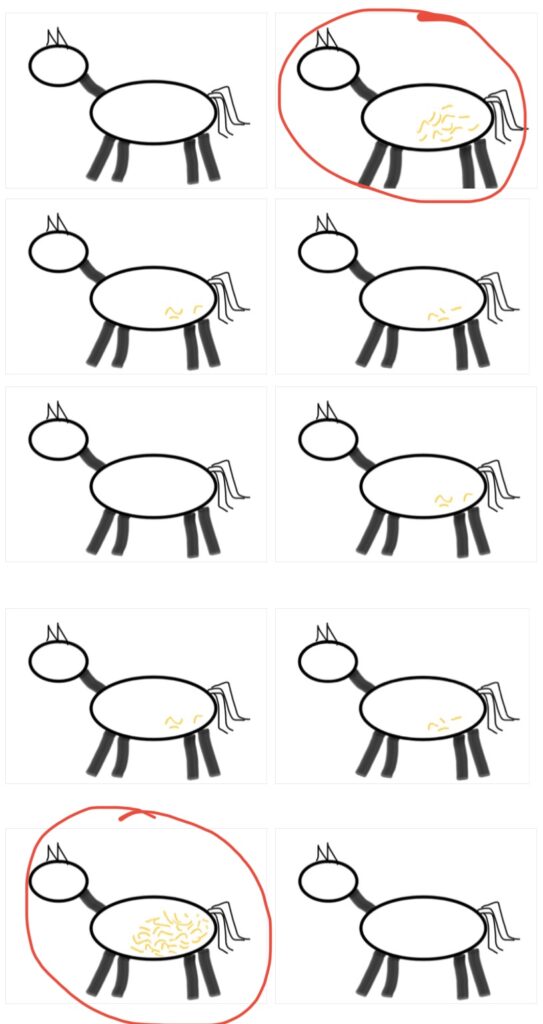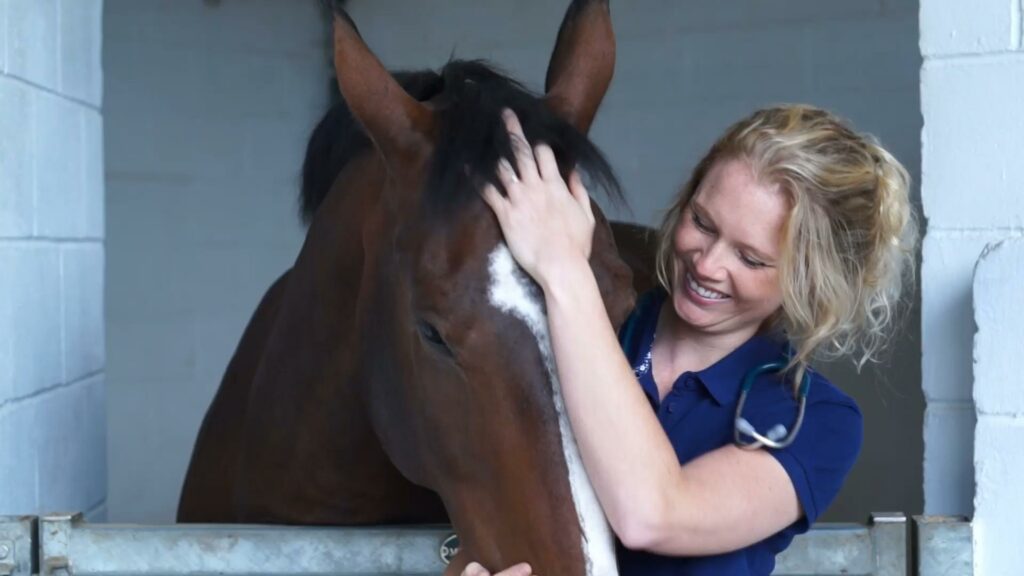Over the last 10 years the way we worm our horses has changed dramatically for the better. Due to the onset of resistance to wormers in livestock and horses, we have been forced to adapt and become less reliant on blanket worming plans. Back in the 90's and early 2000's it was common to have whole yards on worming plans that involved giving every horse a wormer every 6-8 weeks.
We now know better, and thankfully the majority of owners have abandoned this practice in favour of worm egg count (WEC) tests. One question that crops up a lot, and many clients struggle to understand, is how horses in the same field under the same management conditions can have such variation in the results of the WEC tests. So I am going to do my best to explain why in this post.

So lets assume a scenario: We have a stable herd of 10 horses, with no new horses coming or going. They all live in the same field and all the owners are dedicated to worm control, so they regularly poo pick the field, there are no other horse's nearby and the poo from the poo picking is taken to the muck heap far away from the field. All new horses are checked for worms on arrival and wormed while in isolation, then re tested 14 days later to ensure they are not carrying resistant worms.
The horses have worm egg counts every 2-3 months throughout the year. Here is a typical result:
Sunny 0, George 50, Sam 150, Max 0, Rudi 650, Colin 50, Red 0, Coco 0, Stanley 900, Milo 0.
The numbers mean eggs per gram (epg) and are how many worm eggs are in each gram of faeces. Counted under a special microscope slide with grids on. Anything below 250epg is considered low, 250-400 is medium, and over 400 would be high (Note - these cut off values may vary).
So Rudi and Stanley's owners want to know why despite the arduous back breaking work of poo picking after work 3 nights a week, their horses have high worm egg counts when the rest of the field don't.
The answer lies in the 80:20 rule! We know that only 20% of the horse's in a well managed herd will contribute to 80% of the worm burden in the field. But what does that mean?

Using my very bad diagram above (trust me my hand drawing was worse!) the circle and sticks represent the 10 horses in the field, and the little orange things inside their belly are worms. As you can see, only 2 out of the 10 horses actually have a high level of worms (circled in red). So these 2 horses will be pooping the highest amount of worm eggs onto the field. But why these 2 horses?
That just comes down to individual susceptibility to the worms. Assuming we don't have young or old horses or horses with any kind of immune compromising disease (such as Cushing's) there will always be some horses that are just more likely to have worms than others. Much like the colleague that always seems to manage to catch a cold, horse's are the same.

This is important because we want to identify these horse's before they contaminate the pastures too much. This is where the worm egg counting is really valuable - it helps us to identify the high shedders in the field so we can treat only those horse's with wormers.
This means on well managed yards only 20% (maximum) of the horses will actually need to be wormed.
These guys can become serial offenders too and despite the best management they regularly come back with high counts - that is just unfortunate and comes down to individual susceptibility. Other times we manage to reduce those worm burdens and keep them down long term. But the only way to know for sure is to check - every 2-3 months.
So in summary, worm egg counts are the best way to manage worming in your horse, they work best as a whole yard approach but are still valuable in individual animals. Only 1 in 5 horses will likely need to be wormed.
Top Tip: When collecting your sample we only need 4g which is not a lot, but try to take a tiny amount from multiple parts of the poo pile, as worm eggs are rarely spread evenly throughout the poo so take lots of little bits to give the best sample. Samples can be stored in the fridge for several days and fresher poo samples give more accurate results.
As always, the team are here to help you with your worming questions so do not hesitate to get in touch!
Jenny x


